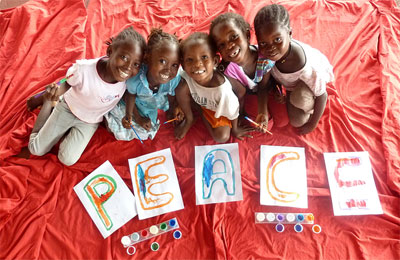It might be over a month away, but my husband and I have already begun to think about the Christmas and New Year holidays here in the UK. In particular, it looks like lots of my family are likely to travel from London and elsewhere to join us in Glasgow. I’m really excited, but my husband is worried that we might be taking too much on – what with preparing places for the family to stay, cooking the huge main meal on the big day, other meals and parties the days before and after, and so on. He’s already flagged that the list of “to do’s” is quite long!
I was reminded of this family conundrum when I travelled down to London last week for a number of meetings. Most of the people I met couldn’t stop talking about what might replace the Millennium Development Goals (MDGs) after 2015. I wasn’t surprised. The High Level Panel that has been asked by the UN Secretary General to write a report on the issue was in London to discuss their work and consult with civil society, private sector and other groups. Added to this, Prime Minister David Cameron had just written an Op-Ed in the Wall Street Journal about his views on development – which lots of people wanted to give their perspective on. There was a real buzz and air of excitement.
So on Friday afternoon, I decided to join in the buzz and watch a live-streamed event about the Panel’s work with civil society and keep an eye on its twitter hash-tag – #post2015HLP. As I watched, what I found remarkable was the long list of issues raised – from disability to health and education, to jobs and illicit financial flows. At the end, Abhijit Banerjee, one of the panellists, calculated that 32 issues had been raised! Yet the original MDGs only had 8 goals, and London’s event was only the first of three major meetings and consultations. I realised the panellists would be concerned about just how long their list of “to do’s” would get by the time they issued their report!
Indeed, the High Level Panel could be tempted – like me – to take too much on. The small part of my family in Glasgow can deliver a big, amazing holiday for the wider family. Similarly, the post-2015 framework will and should be ambitious. These first set of meetings in London were a real success – and they indicate just how much potential the post-2015 framework has for being game-changing. But it could also collapse under its own weight.
The solution for the holiday problem that my husband has come up with is that we should ask our visitors, politely, to each take responsibility for one of the parts of our time together – one of the meals, the drinks, the desserts – and we keep responsibility for the “main bits”.

This “sharing” solution could also apply to the post-2015 framework. There are other international processes that could have an impact on development and poverty reduction. Take the G8 next year, which the UK will chair for the first time since 2005. The G20, which Russia will chair. And the Global Partnership for Effective Development Cooperation, which Justine Greening is co-chairing with Nigeria’s Finance Minister Ngozi Okonjo-Iweala and Indonesia’s Planning Minister Armida Alisjahbana. These are all valuable international fora for discussion and agreement on major, international issues.
Take the Global Partnership. It has a Steering Committee that’s due to meet for the first time in December. The Committee could do some complimentary work to the post-2015 discussions. It could work on certain elements of the post-2015 framework that require international coordination – the “how” of the post-2015 framework. It could pave a way for a broad range of actors to contribute to development, something which one of the Millennium Development Goals – MDG8 – had aimed at, but, as this UN report suggests, has not sufficiently addressed. The Global Partnership, like the G8 or G20, could help achieve some of the post-2015 framework outcomes, and share in the work.
As I returned to Glasgow from London last week, I was struck by just how high expectations are for the post-2015 High Level Panel and the process to agree goals thereafter. Expectations will definitely be high in the New Year when there will be two more high level panel meetings in Liberia and Indonesia. It’s all very exciting indeed. But to make it all most likely to succeed, and keep the post-2015 agenda simple and compelling, as the Prime Minister has already reiterated, we might just need to bring others in, in a complimentary and synergistic way, like my family will now do.
